Poetry for Strangers
Question: What will happen if I commit three months of my life to reading one poem, over and over again, to strangers? What will happen to me; what will happen to others? What will happen in the neighborhood of Moabit, where I do the majority of my readings, and in the city of Berlin, where I read everywhere I go?
Over three months, March through May, 2024, I will be reading a Rainer Maria Rilke poem, “Wenn etwas mir vom fennster fallt,” to strangers - 1000 times as part of the ZK/U residency in Berlin. In parks, in the street, at the store, at the techno rave, anywhere and everywhere. This project is an expansion of public space. An invitation to reflect, question, pause. What actually happens? Also confusion, suspicion, boredom. A threat of violence.
Who is poetry for? Or, who thinks that poetry is for them? Every day I go out and measure the question while simultaneously effecting the outcome of the measurement by in some small way expanding the range of who feels welcomed to partake in a poetic experience. And depending on where I am in the city, and the time of day, I am bombarded by rejection. I am hitting my head against walls of “otherness,” over and over again, trying to do so with a smile on my face. And then, someone says yes, and I throw myself into the act of reciting, closing my eyes and taking a deep breath beforehand, then falling, once again, into the poem.
It is an intimate performance. 1000 readings, and every time, the poem is different, because the people I am reading to are different. The setting is different. The weather is different. I am different. The possibility of connection hinges upon all of these factors. To what end? I seek to permeate boundaries of “otherness” by creating shared experiences of poetic contemplation.
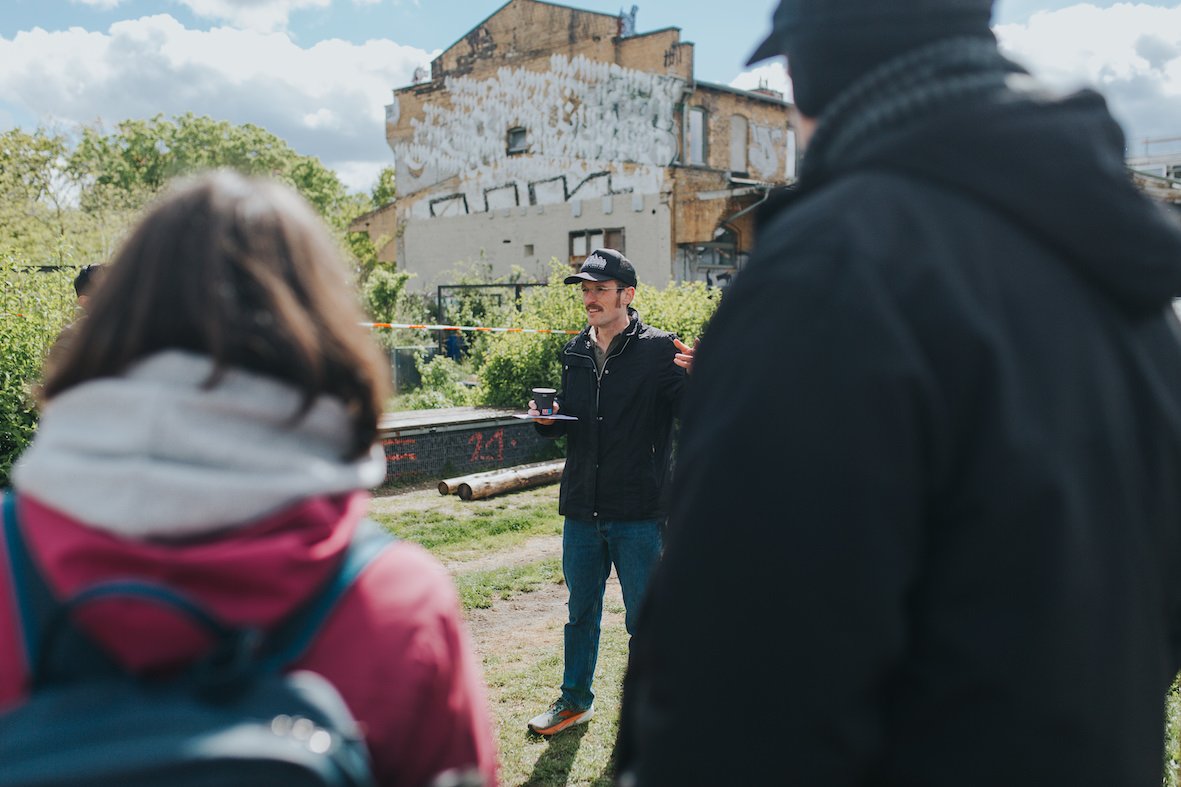


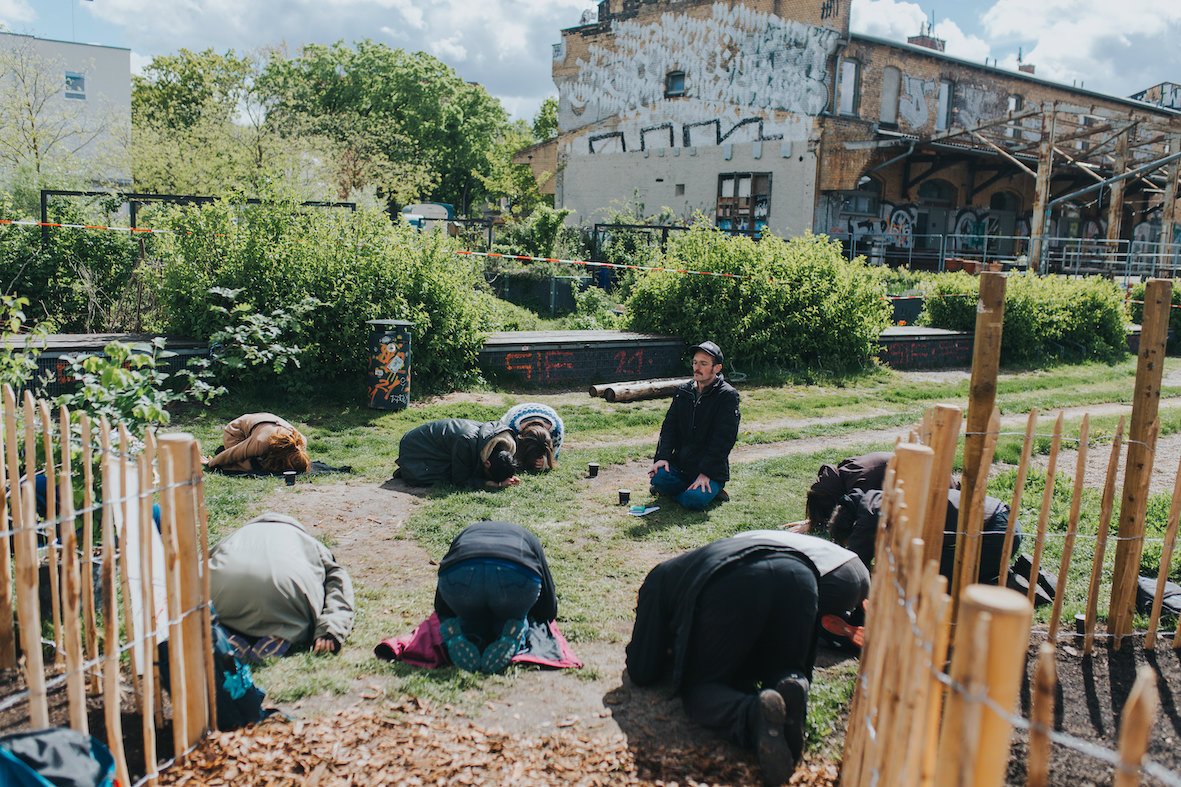
Collaboration with Tiny Forest Project Photos by MelSchütt
Wenn etwas mir vom Fenster fällt
Wenn etwas mir vom Fenster fällt
(und wenn es auch das Kleinste wäre)
wie stürzt sich das Gesetz der Schwere
gewaltig wie ein Wind vom Meere
auf jeden Ball und jede Beere
und trägt sie in den Kern der Welt.
Ein jedes Ding ist überwacht
von einer flugbereiten Güte
wie jeder Stein und jede Blüte
und jedes kleine Kind bei Nacht.
Nur wir, in unsrer Hoffahrt, drängen
aus einigen Zusammenhängen
in einer Freiheit leeren Raum,
statt, klugen Kräften hingegeben,
uns aufzuheben wie ein Baum.
Statt in die weitesten Geleise
sich still und willig einzureihn,
verknüpft man sich auf manche Weise, -
und wer sich ausschließt jedem Kreise,
ist jetzt so namenlos allein.
Da muss er lernen von den Dingen,
anfangen wieder wie ein Kind,
weil sie, die Gott am Herzen hingen,
nicht von ihm fortgegangen sind.
Eins muss er wieder können: fallen,
geduldig in der Schwere ruhn,
der sich vermaß, den Vögeln allen
im Fliegen es zuvorzutun.
How surely gravity's law
How surely gravity's law,
strong as an ocean current,
takes hold of even the smallest thing
and pulls it toward the heart of the world.
Each thing-
each stone, blossom, child-
is held in place.
Only we, in our arrogance,
push out beyond what we each belong to
for some empty freedom.
If we surrendered
to earth's intelligence
we could rise up rooted, like trees.
Instead we entangle ourselves
in knots of our own making
and struggle, lonely and confused.
So, like children, we begin again
to learn from the things,
because they are in God's heart;
they have never left him.
This is what the things can teach us:
to fall,
patiently to trust our heaviness.
Even a bird has to do that
before he can fly.
Translated by Joanna Macy
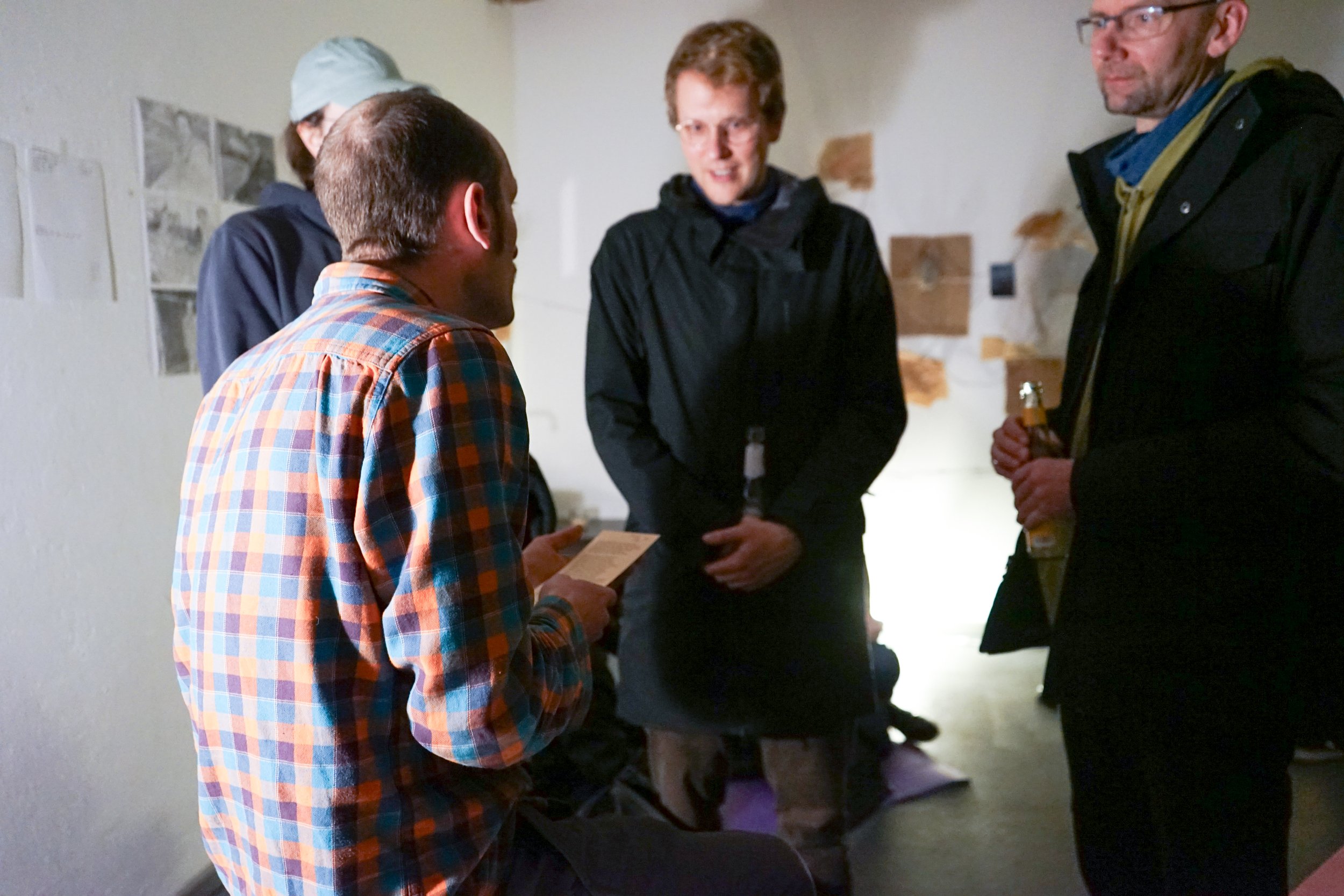
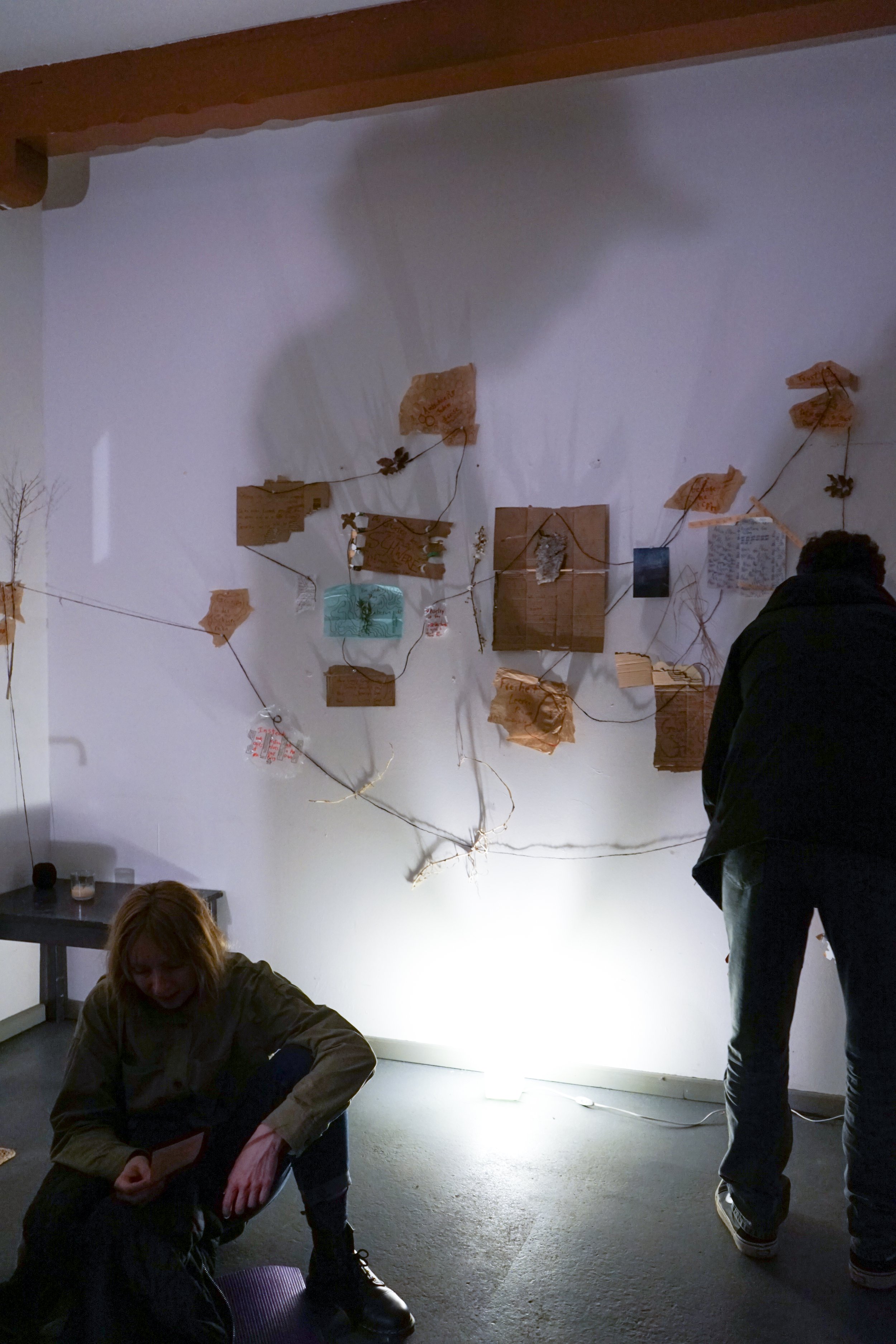
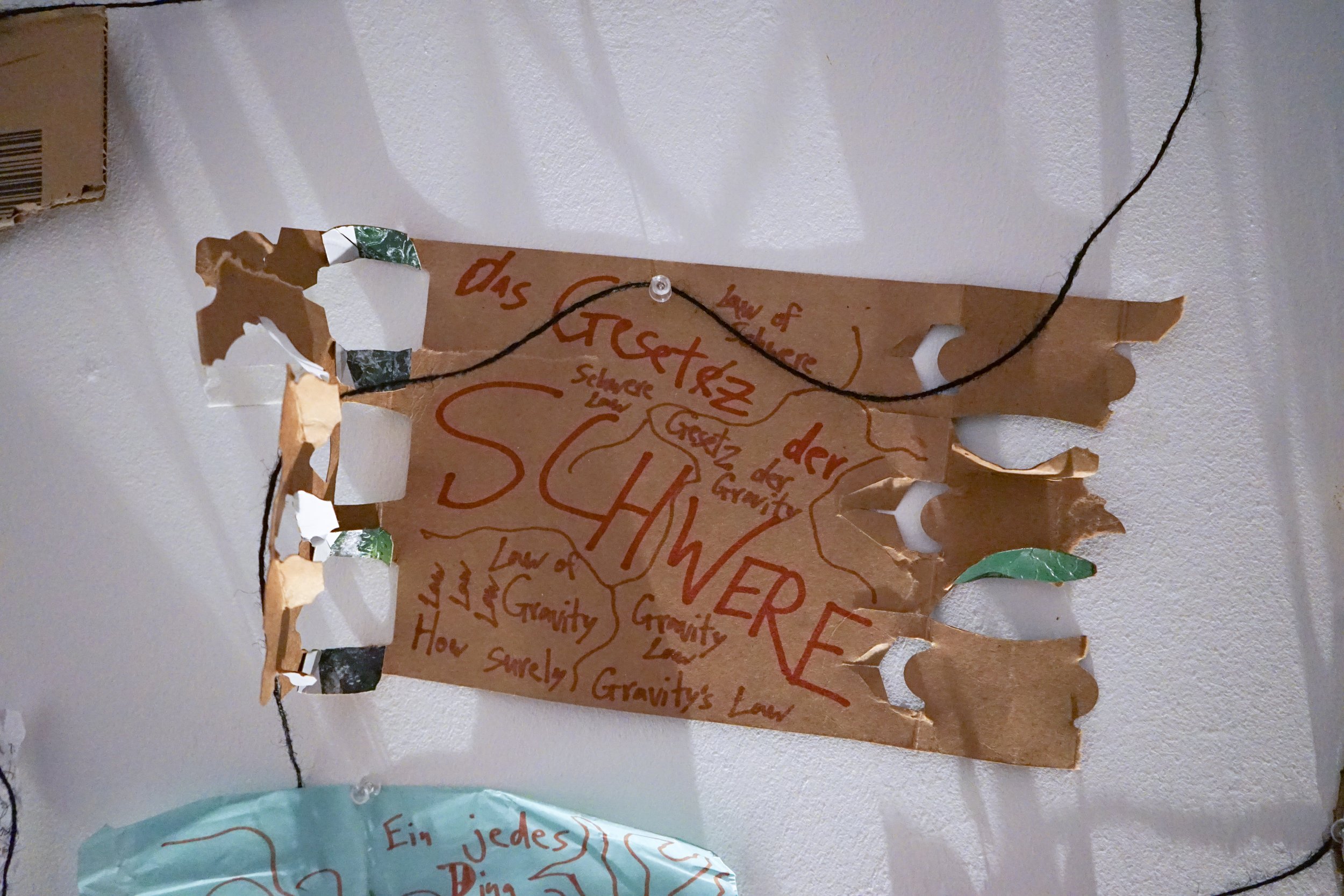
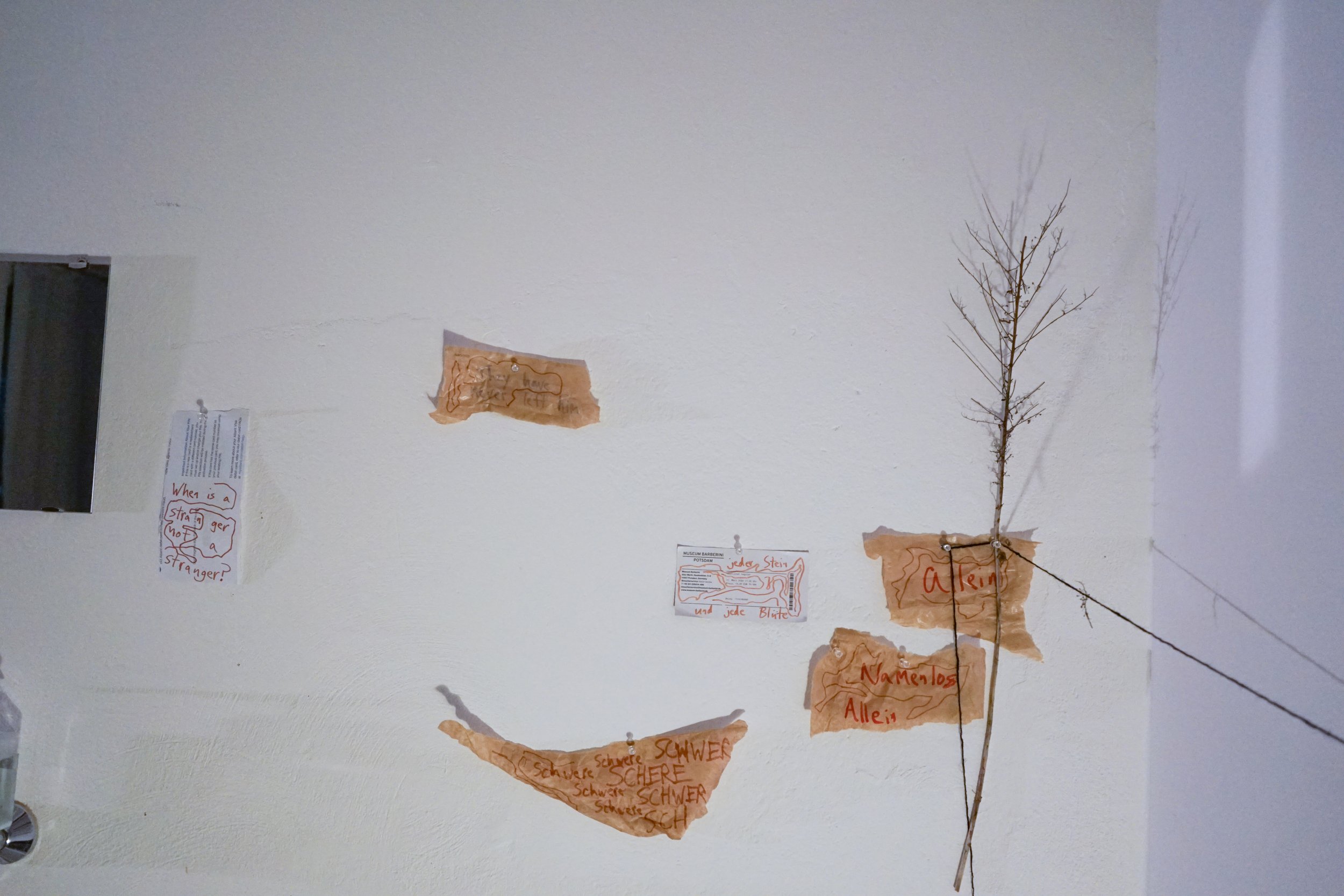
ZKU OPENHAUS Photos by Elisa Georgi